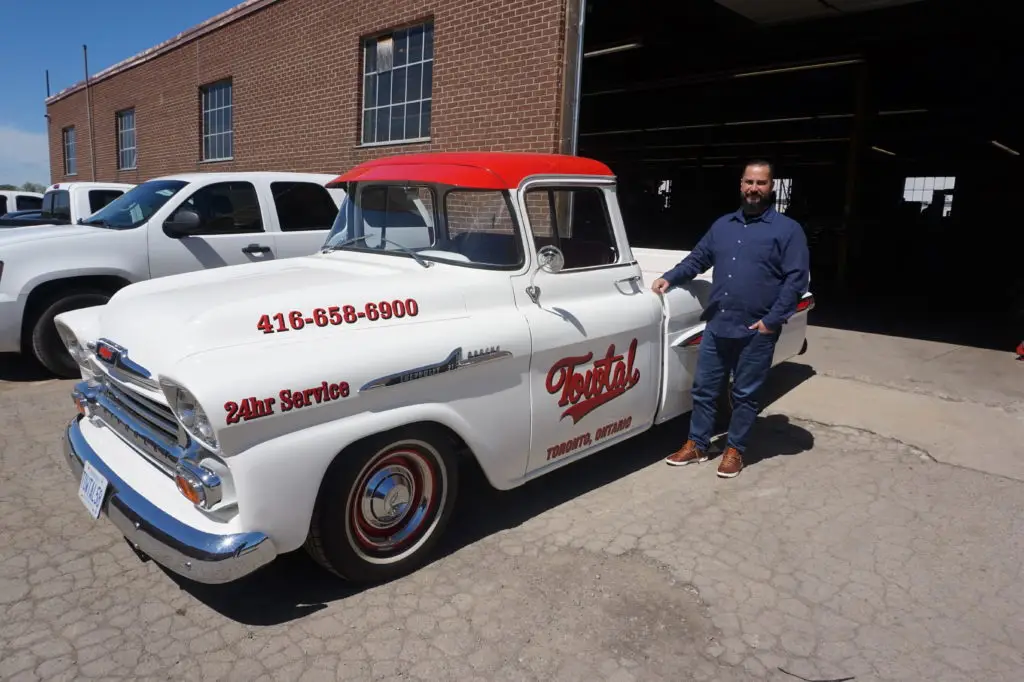Feature photo: Mike Pereira “fell in love” with this 1958 Chevy Apache Fleetside the moment he saw it, so he bought it as a display vehicle for the company.
Growing up in Toronto’s blue-collar Parkdale neighbourhood, Mike Pereira and his brother Phil got used to a few things.
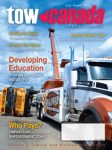
by Chris Young
Hard things. Like being the youngest two boys in a family of seven kids and losing your father at a young age. Like squaring off against neighbouring streets for ball hockey supremacy. Like going to the local boxing gym and skipping rope until your hands burned. Like thinking on your feet and never taking anything for granted.
It is ancient history, but it also tells you something about how Pereira’s Towtal Roadside Solutions has grown into the business it is today, with three southern Ontario locations servicing one of the most congested and competitive corners of the towing industry. Building something from almost nothing is engrained in the company’s DNA.
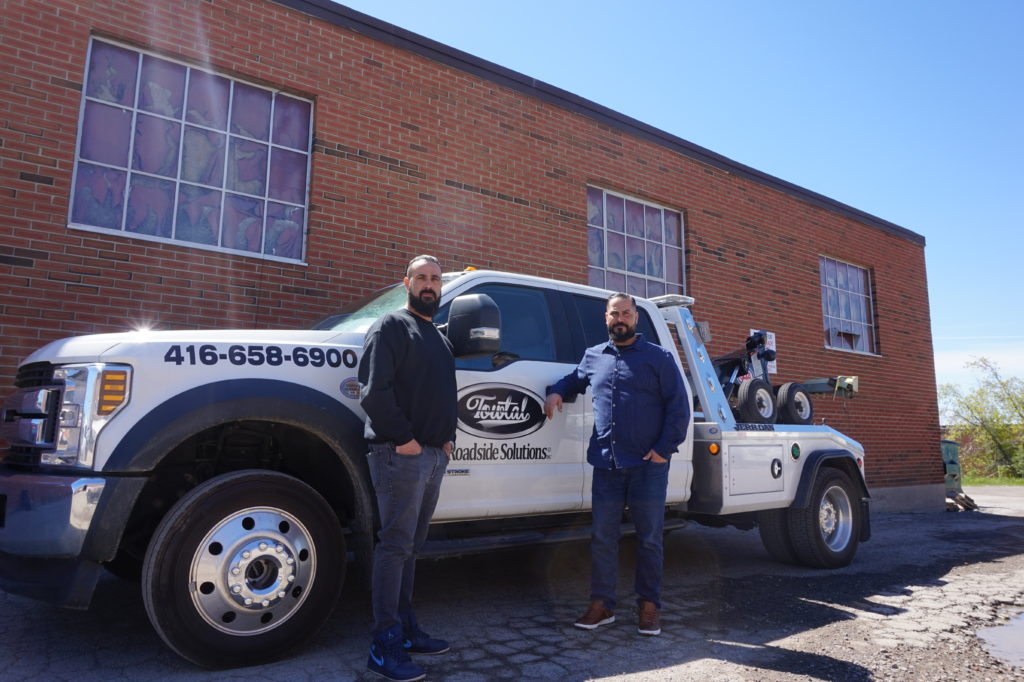
And like the clothes that were recycled down to them by mama Conceição, back at the family home where she still lives, it all started with hand-me-downs—two trucks rescued from a creaking oblivion started Mike Pereira, owner-operator, and Philip, his first employee and aide-de-camp, on their way. With some experience of their own and an older brother, Herc, in the business ahead of them to offer advice, they knew something of the industry’s unpredictable ways and maverick reputation.
“Being 17, it was hard to insure me, and I didn’t want to drive a chase truck, I wanted to do either police towing or private property stuff,” Mike recalled of his first summer job as a teenager, driving for Frank Rego’s A Towing. “We’d go to nightclubs and buildings and tow all the illegally parked cars, so it could get a little bit rough. We had quite a few run-ins.”
Mike was a quick study, watching and learning how it all worked and, after a stint driving a tractor-trailer and running a cafe, by 2003 he was ready to try towing on his own, in a province where some 1,200 towing companies and 3,000 drivers already operate. Frank helped him along, renting a west-end pound that his A Towing had vacated for Mike and Phillip, four years his junior and now riding shotgun as his first employee.
“We financed the trucks off of them, trucks that were sitting in the yard for years and were falling apart,” recalled Mike. “You’d turn right and the passenger door would open, so we had to bungee-cord the door to the dashboard.”
For the Pereira brothers and their two-truck fleet, it was literally a round-the-clock, hand-to-mouth operation. After the pair drove all day, Phil would bunk in to be there when the crowd showed up looking for their cars, none too happy about it.
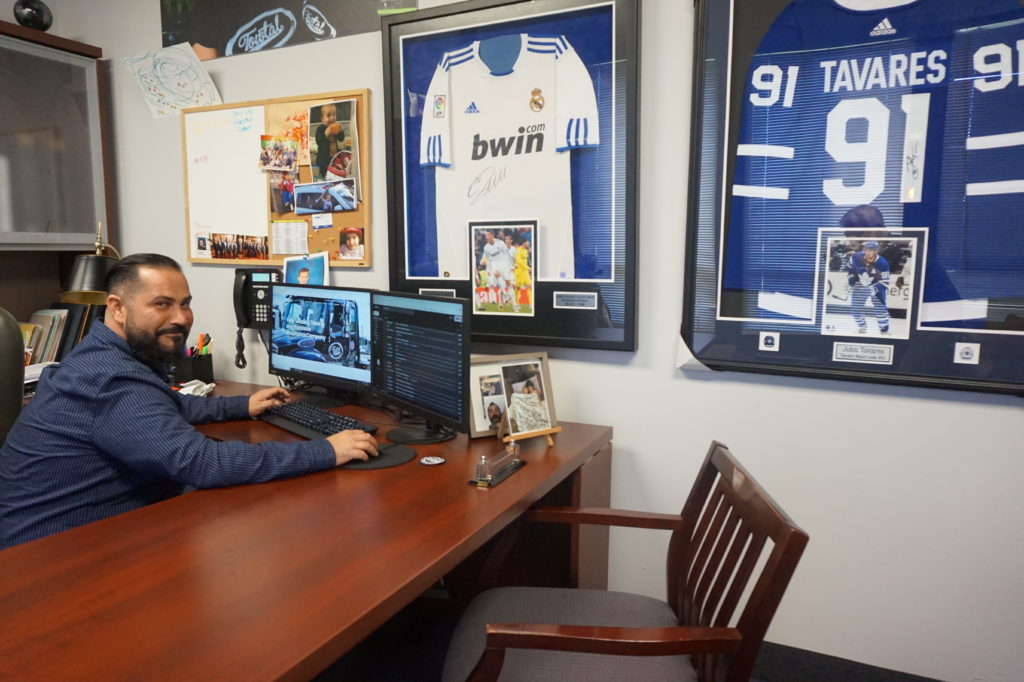
“I’d stay in the office overnight to keep it going 24 hours,” said Phil. “Nobody really believed in us. We would tow cars out of areas no one wanted to go, TVs being thrown at us from 20 floors up.”
Starting from a bank balance of zero—“It was all pay-as-you-go,” said Mike—they added a couple more trucks and a breakthrough came a couple of years later following a quick hello with CAA at Baltimore’s annual November towing expo. Mike was back home standing in line waiting to take care of some municipal licensing when CAA called back, needing immediate help handling a backlog.
“That (first) day we did a hundred calls. We had four trucks. The next call from CAA was a simple one: ‘How in the heck did you do that with only four trucks?’ I said, ‘send me another hundred calls and I’ll show you how.’
For the next few days, we did a ton of calls and we started our relationship with them. It kept growing from there.”
From the start, Towtal—originally called T.O. Towing, for its Toronto origins—emphasized a consistent pattern of professionalism and attention to detail that endures, with uniformed drivers and in-house training by three full-time, WreckMaster-certified staff.
Mike never got the coveted Toronto police contract, his original goal, and side ventures into a mobile tire change service and a car care centre didn’t pan out, but the rest of the business did. So much so that Mike stopped driving himself when it all got to be too much juggling driving and raising two young children with his wife, Claudia. Phil served as shop manager and supervisor until those jobs got too big for just one person to handle.
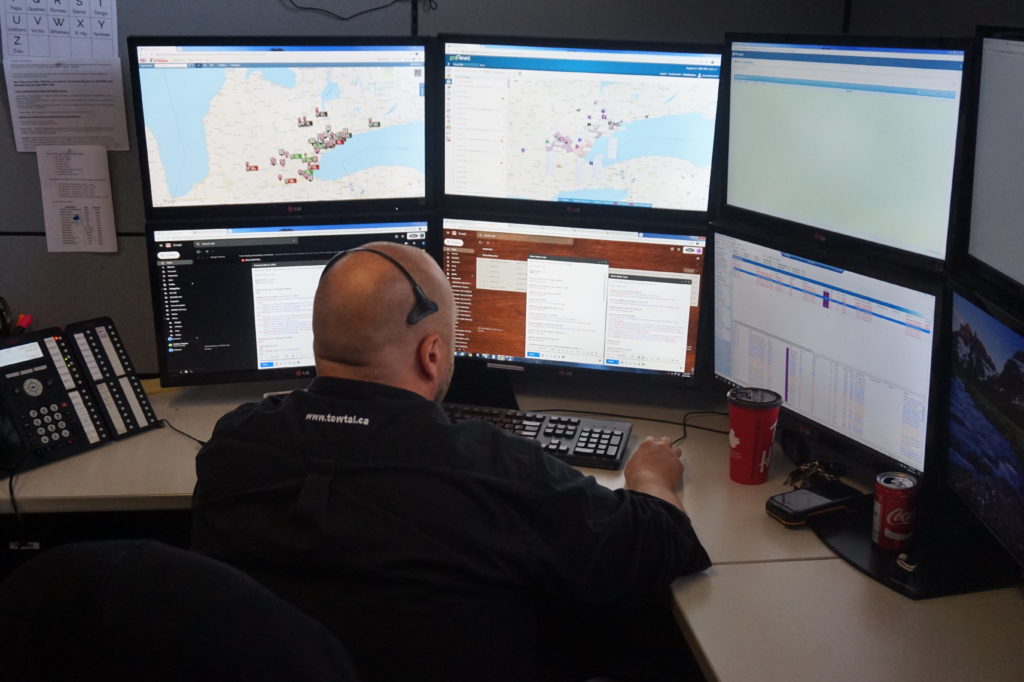
Nowadays, Towtal includes Mike’s sister, Tina, and niece, Amy, among nearly 30 employees. Besides the 14,000-square-foot head office in Mississauga, just a short drive from North America’s busiest highway, the 401, there’s a one-acre yard to the west in Oakville and half an acre in Kitchener. They also acquired contracts with Halton Regional Police and the Ontario Provincial Police. And, with the majority of business coming from roadside assistance, the usual 500-plus calls a day swells to more than double that when bad weather hits. A couple of dispatchers work the day shift deploying up to a hundred or so trucks flying their colours.
“We run a pretty tight ship,” said Phil, who keeps an eye on the day-to-day operation down to the most granular level. “Our standards are higher. Other drivers will come in and say [there are] too many rules, too many procedures. But you need rules and procedures. We’ve invested a lot in supervisors and managers, and most people don’t do that.”
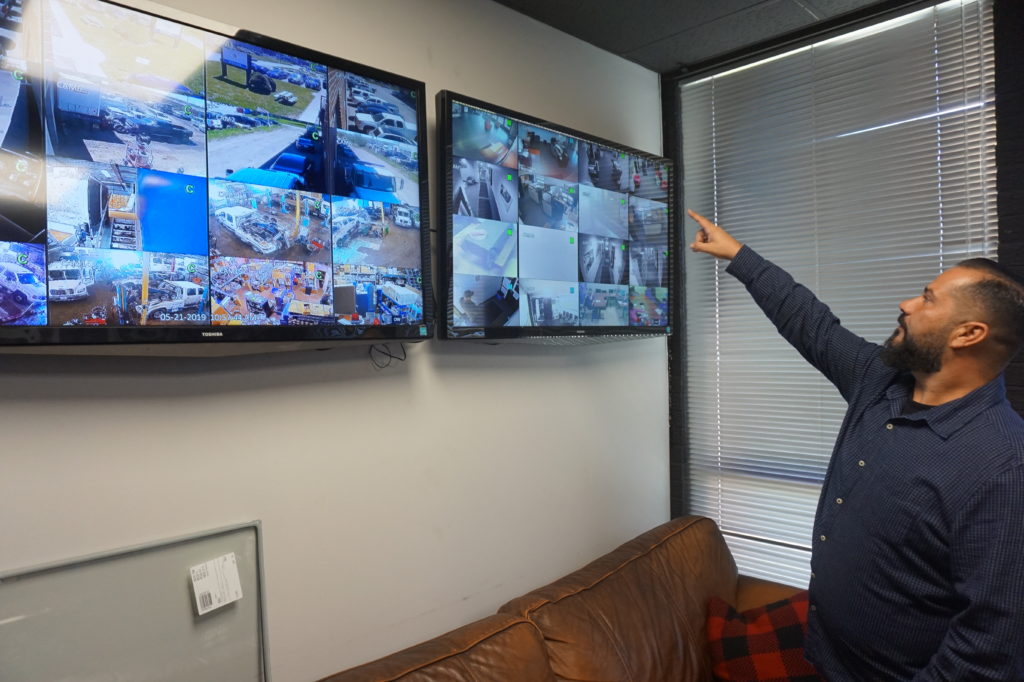
Perhaps heeding the networking lessons learned at that long-ago Baltimore show and the start of their CAA relationship, Towtal has since been a fixture at industry gatherings. Last year, they took ten employees to the Florida Tow Show, a nod in part to addressing the biggest problem he’s found over the years: finding and keeping good staff.
“It’s not about getting rich. There’s very low margins and you have to be careful with every dollar,” Mike recalled at the Mississauga office, where autographed jerseys of Cristiano Ronaldo and John Tavares hang on the wall and reflect his Azorean-Portuguese heritage and love of sports. “But it’s a satisfying job. When there’s a winter storm we’re going out to work while everybody’s depending on us.”
And oh, about that boxing gym—it is called Sully’s, a Toronto institution since the early 1940s that has been the training ground of George Chuvalo, Lennox Lewis, and thousands of others. The same conditions that forced Towtal to move outside the downtown core they still service—high real estate prices and scarcity of suitable space—have hit Sully’s hard. It is a bit of a homecoming, then, that Pereira’s Towtal stepped in, lending a hand with equipment, buying tickets to events for members, putting together corporate sponsors, and helping in negotiations for a new location. And to think, this was once a place where he walked in and was not allowed to so much as throw a punch. As in towing, life, and business, he learned from it.
“With where I’m from and the business we’re in, at-risk youth is an area I know well and I’d like to try to make a difference in,” said Mike, now a member of the gym’s board of directors. “I went into Sully’s; I never got to hit a bag. But they gave me a skipping rope—and I can still skip.”
Photos: Chris Young
